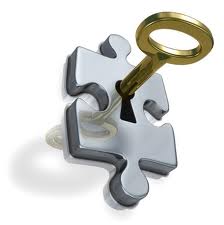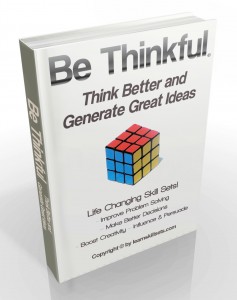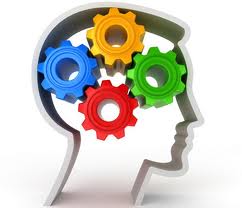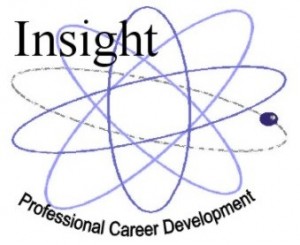New Skills-Influence And Persuasion: Three Golden Keys And More
New skills- Influence and persuasion an important skill set part 2
In our first post, we mentioned how important it is to learn new skills like influence and persuasion. We also laid the groundwork and basics for the subject of influence and persuasion. To keep that post length a little shorter, we broke it into 2 parts.
In this post we will show you the:
- 3 golden keys to influence and persuasion
- Modern techniques that makes you effective
- The insight to the performance tools Presentation Master you can use In my first attempt at trying to sell a product
New skills– Influence and persuasion a quick review: what’s the difference again?
The American Heritage Dictionary defines manipulation: “Shrewd or devious management, especially for one’s own advantage”. This is most fitting when discussing the difference between influence and persuasion compared to manipulation. There is no way we can leave this difference out of the article.
With influence and persuasion, it’s all about the opportunity for two people to come together on an opinion that is mutually beneficial. No one wins if someone loses and manipulation or hard selling tactics is not effective long term. In order for you to be successful long term with selling your thoughts and ideas, it has to be a win-win.
New skills- influence and persuasion the 3 golden keys:
- The emotional connection
- Trust
- Listeners point of view
New skills- Influence and persuasion the emotional connection is the 1st key
Do you have trouble getting your thoughts or ideas across? When you speak, do others listen to you, or do you feel your listener wandering?
Effective influence and persuasion is basic communications for “convincing” others. This new skill is essential in business and everyday life. According to Bert Decker’s book: “You Have To Be Believed To Be Heard”, the most powerful communications reaches not only the mind but also the heart. I highly recommend this book for persuading and influencing others.
Influence and persuasion- trust is the 2nd key
It comes down to a simple question. Who will they trust? At the end of the day, it always comes down to trust. Do you trust them, or not? Do you believe what they are saying, or not? Is this person credible, or not?
Trust is so valuable that we spend our entire lives building trust and credibility, and rightfully so. The more effective we are in doing that, the more successful you will be when it comes to influence and persuasion.
Influence and persuasion- listener’s point of view is the 3nd key
OK listeners, listen up!!!. This is 2012, hardly a new year by now. Get this right and you will have a happy new year. The “listeners’ point of view is the foundation, cornerstone and starting point for influence and persuasion. When you get this right and have the other two keys in place…it’s like presto. Being effective at influence and persuasion opens the golden treasures to being more successful, more productive and more valuable….and more influential. You are what we call- a person of influence.
In the next generation of influence and persuasion, it’s not really about you. No one cares that you have a great idea. Nobody is really interested in the products you sell. When you get the right perspective on how to influence and persuade, you will be more effective and more successful at it.
You must know and understand your listener. When you start off with “I have this great (product or idea or whatever the situation) I know you will like”, you just triggered the self preservation mechanism I discussed in the first post. If your listener hasn’t already said no, he is already thinking no.
New skills- influence and persuasion is all about knowing your listener
In business you need to identify what they call the pain, or problem area: When you know your listener, you know what:
- Keeps them from falling asleep?
- They are they really concerned about?
- Frustrates them?
- They are angry about and who are they angry with?
- What they have to do and must do in their business to succeed or to grow it to the next level
In your personal lives, you identify the pleaser: When you know your listener, you know what:
- They truly desire most?
- Excites your listener?
- Appeals to them being happy?
New skills-influence and persuasion answering the two most important questions
Since influence and persuasion is used in both our everyday lives and in business, I will give you approaches to both perspectives. When you can identify the top two pains of your listener, you are ready to start your presentation for the business perspective. When you can identify the top two pleasers for your listener, you are ready to start your presentation for the personal perspective.
A quick comment on presentations. A presentation is how you get others to understand and accept your ideas. In simple terms, it has an
- Opening- with the listener’s point of view
- Body- what you are trying to get others to understand or accept your ideas on
- Benefits- why this solves the pain or pleaser
- Answers to objections- why the benefits solve the issues
- Call to action- to do something by a certain date
Here are the simple steps to influence and persuasion for a successful presentation and in this sequence.
- Start with the listeners point of view
- Show them how benefits solve the problem
- Prepare a list of objections that they will most likely have
- Summarize the listeners point of view again
- Have them take the action you want by a certain time frame.
Here are two examples. The first is convincing someone on a new idea you have, the second is convincing your friends that Saturday night dinner is at the place you want to go, even though everyone has their favorite spot in mind.
Selling your idea on a new product you developed: “Dan I know you want to attract new markets and increase your company’s profits. New products are the heart beat of every company, especially when they appeal to your target customers and meet your profit objectives. My idea will help you deliver those customers and add more profit to your bottom line. You may be thinking, how can I afford to develop new products or spend money to buy them. Dan, you don’t have to, in fact you don’t even need to buy my super widget product. We can do a joint venture, and I will make 8% on any sales you make and I will help you to market it.” We need a short follow up meeting to review the concept.” Think you may get a yes here?
Selling your friends on your dinner location:
“Hey Tom and Mary. I know you guys love the hustle and bustle in a white table cloth establishment. And Carl and Rose, you just mentioned you love fine Italian. Honey, we should think about Napoli’s Fine Classic Italian restaurant Saturday night. Now I know everyone is thinking of their favorite spots, but tonight seems like it should be special, different and upbeat. It’s not the last supper- a little humor, and this place is really heating up in the news! I will handle the reservations for six at 8 PM.” I think you made a good case and would likely convince the group.
Influence and persuasion- high performance tools- The Presentation
In my book Be Thinkful, I include a template tool for making presentations. It’s called The Presentation Master. It starts with the listener’s point of view. The Presentation Master is included as a free bonus for buying the book and comes with an easy to use worksheet and excel template you can use for every presentation you make. The book is $7.95.
Good luck with learning new skills like influence and persuasion. If you get this skill right, your dreams will come true.
George Napoli is both an author: Be Thinkful©, as well as an entrepreneur having coached and trained thousands of employees and entrepreneurs in high level skill sets in Leadership, Six Sigma, Management Training and a wide range of high level- life changing skill sets like thinking, creativity and innovation and change. I am a Professional Blogger and Professional Internet Marketer. I am fortunate to hold Masters Certificates in Human Resource Development, Strategic Organizational Leadership and a Master Black Belt in Six Sigma, all from Villanova University.
This post is property of Learn New Skills Blog. You may reproduce this post; New Skills-Influence And Persuasion: Three Golden Keys And More only in its entirety, including resource information and maintaining active links.






